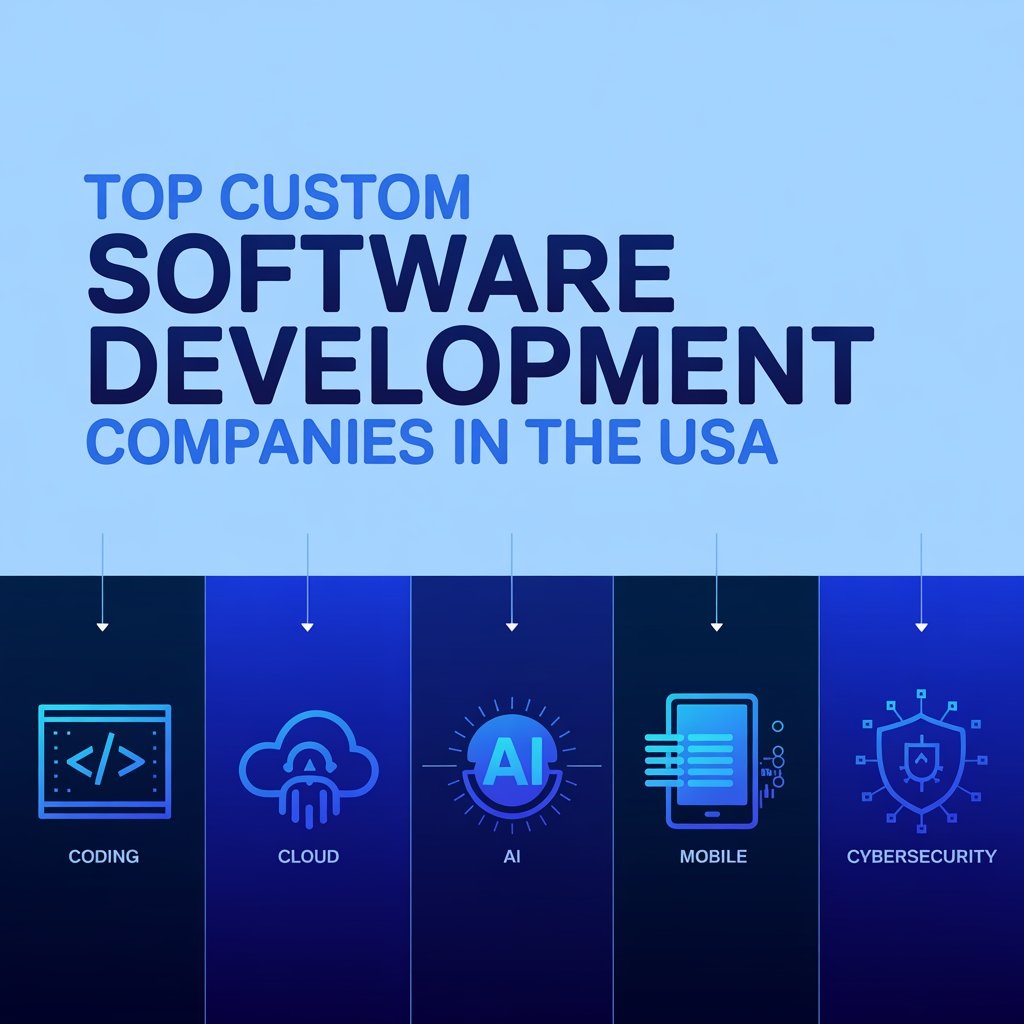Do you feel like you’re spending too much time and money on tools that still don’t fix business problems? Many business owners face the same pain, how to turn raw data into decisions, how to save time by automating repetitive tasks, and how to build digital systems without draining the budget. Python might be the answer.
It’s flexible, easy to learn, and incredibly powerful. Python is now one of the most popular programming languages on the planet, with over 8 million developers worldwide.
If you’re serious about working smarter, you need to know how Python uses in business can help you do just that. If you’ve ever wondered how is Python used in business, the answer lies in its ability to automate, analyze, and innovate, all with fewer resources.
Python has become one of the most flexible programming languages for building modern business solutions.
If you’re curious about its potential, this guide on what you can do with Python offers a solid overview of its key use cases. For leaders evaluating stacks, it’s common to search for Python for business and compare options.
What Is Python Used for in Business?
Python isn’t just for techies or scientists. Today, even small companies use Python to solve everyday problems. You can scale it as your needs grow. If you’re exploring the uses for Python in business, think automation, data analysis, and smarter workflows.
- Process data quickly to find patterns in customer behavior.
- Automate monthly financial reports and reduce errors.
- Build dashboards that show live business performance.
- Create internal tools to manage inventory or staff.
- Predict future trends with machine learning models.
- Connect different systems using APIs and Python scripts.
Businesses often choose Python for its simplicity and scalability, especially when comparing it to other languages. A side-by-side look at C# vs. Python helps clarify which fits different types of projects.
Key Business Applications of Python
The strength of Python lies in how many business problems it can solve with fewer resources. It’s not just about writing code, it’s about building solutions. When used right, Python cuts time and boosts efficiency. It’s a major tool across many industries today.
1. Data Analysis and Business Intelligence
Python shines when it comes to business data. Every company today collects data, sales, customers, supply, and traffic, but very few actually use it well. Python helps organize, clean, and analyze data without needing huge software systems.
Popular libraries like Pandas, NumPy, and Matplotlib help sort and understand complex datasets. With Seaborn and Plotly, you can build visuals to spot trends fast. That means you can make decisions based on facts, not guesswork. Many teams formalize this as Python programming for business analytics to standardize reporting.
Tips:
- Automate weekly sales reports.
- Segment customers using behavior data.
- Track marketing performance by channel.
2. Automation of Repetitive Tasks and Workflows
If your team repeats a task daily, weekly, or monthly, Python can likely automate it. That includes copying data, generating invoices, sending reminders, or organizing files.
Python scripts work behind the scenes. You can schedule them to run at night or on set days. This reduces manual mistakes and frees up your team’s time.
Use Cases:
- Auto-generate Excel sheets for inventory.
- Scrape websites to collect competitor pricing.
- Sync data between CRM and ERP systems.
3. Web Development and Customer-Facing Apps
Using Python, you can build full websites and online apps. It’s perfect for companies that want control over their tools. Popular frameworks like Django and Flask allow teams to launch fast and scale later.
Whether it’s a booking system, an eCommerce store, or a dashboard for clients, Python makes development easier. You get speed without giving up quality.
Examples:
- Real estate site with client dashboards.
- Online booking tool for medical clinics.
- eLearning platform with user progress tracking.
4. Custom Business Software Solutions
Off-the-shelf tools don’t always fit. Python helps build internal tools that match exactly what you need. Whether it’s HR scheduling, finance tracking, or customer support tools, Python offers full control.
You can scale these tools or adapt them as your team grows. No need to switch software every year.
Examples:
- Workflow tool to manage leads.
- Custom billing system for subscription services.
- Employee time tracker with analytics.
Best Python Libraries for Business Use Cases
Python has a huge library ecosystem. You don’t have to build from scratch. These libraries handle most business needs.
1. Pandas
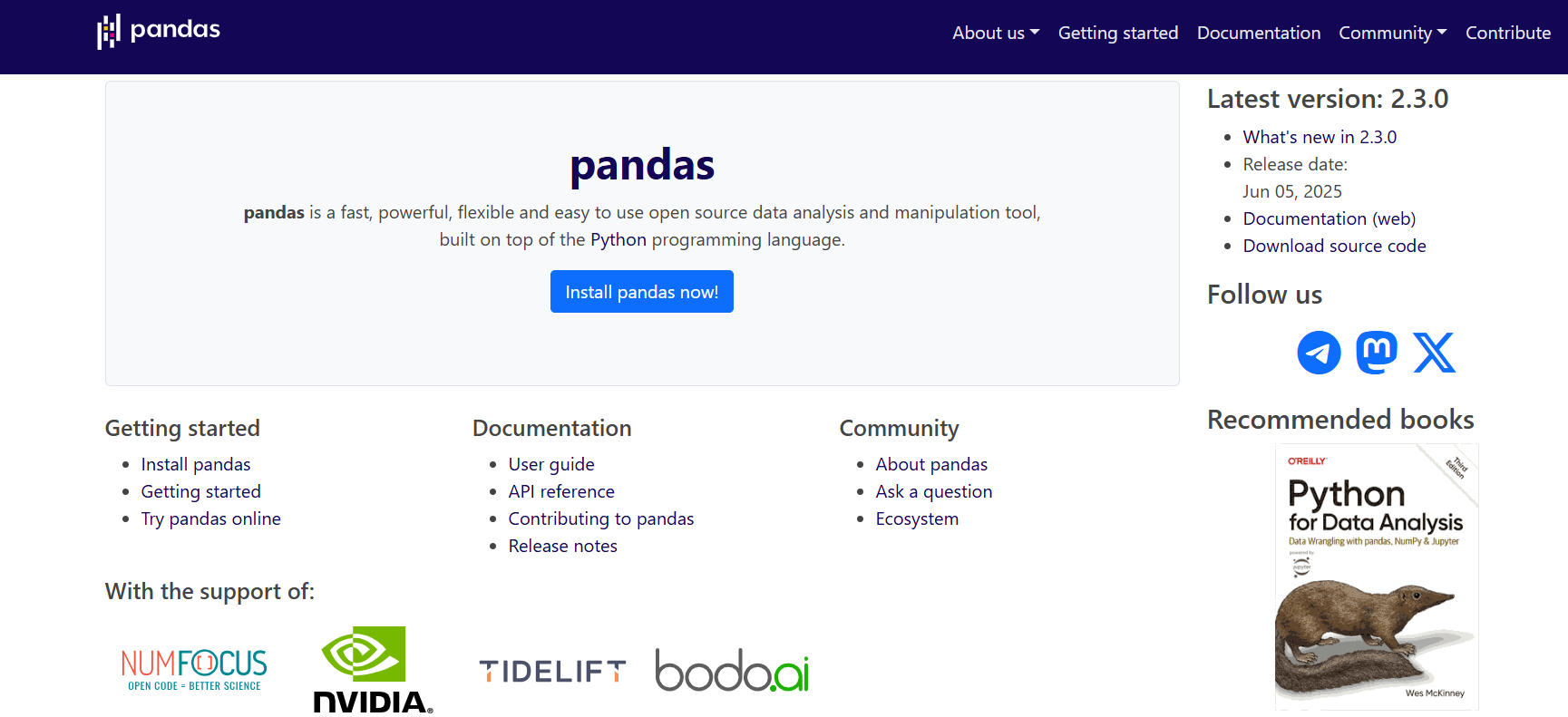
Used for data manipulation and analysis. It helps clean, format, and join datasets.
- Ideal for Excel replacements
- Works with time series and structured data
- Makes reporting faster and more accurate
2. Scikit-learn
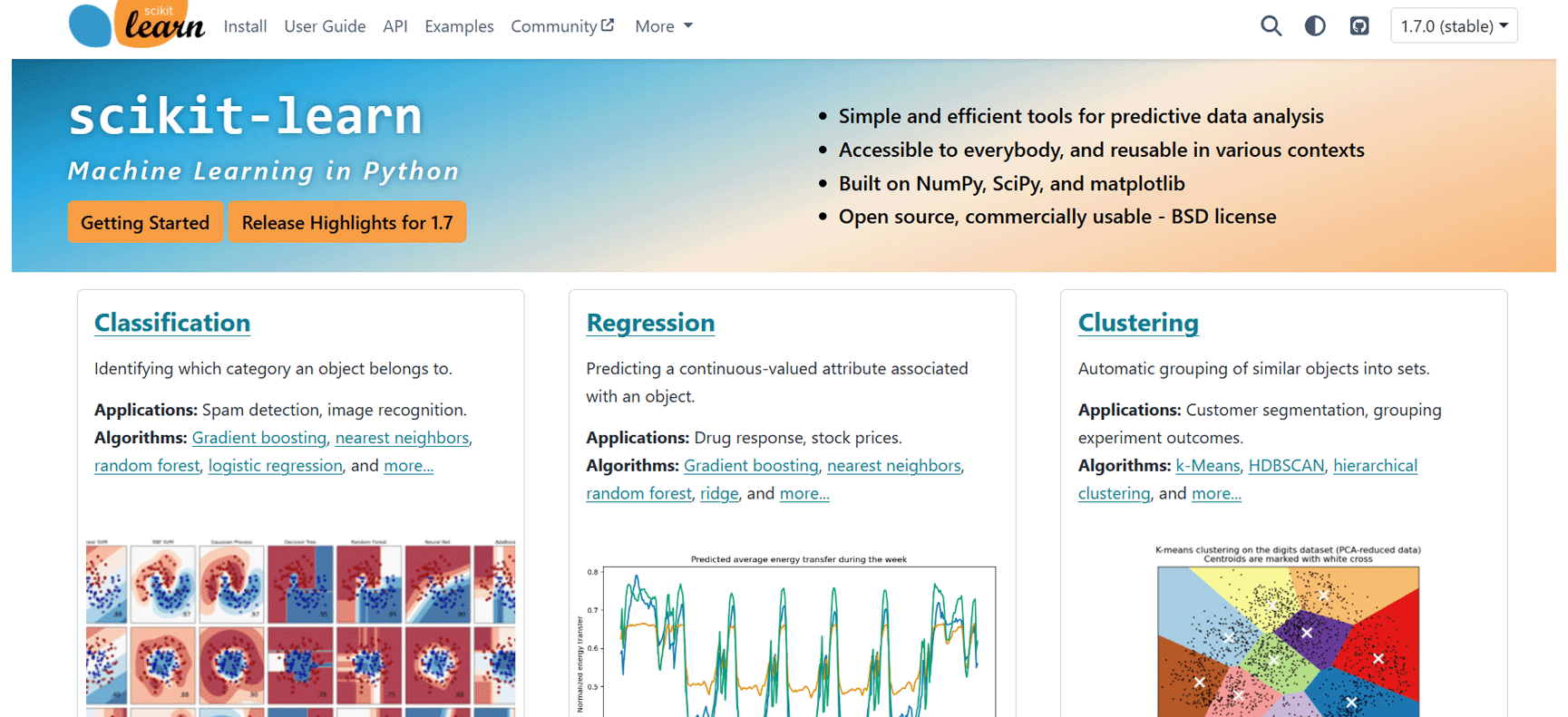
Used for building predictive models.
- Includes clustering, classification, regression
- Fits many business needs, churn, sales, risk
- Works with Pandas and NumPy
3. Matplotlib & Seaborn
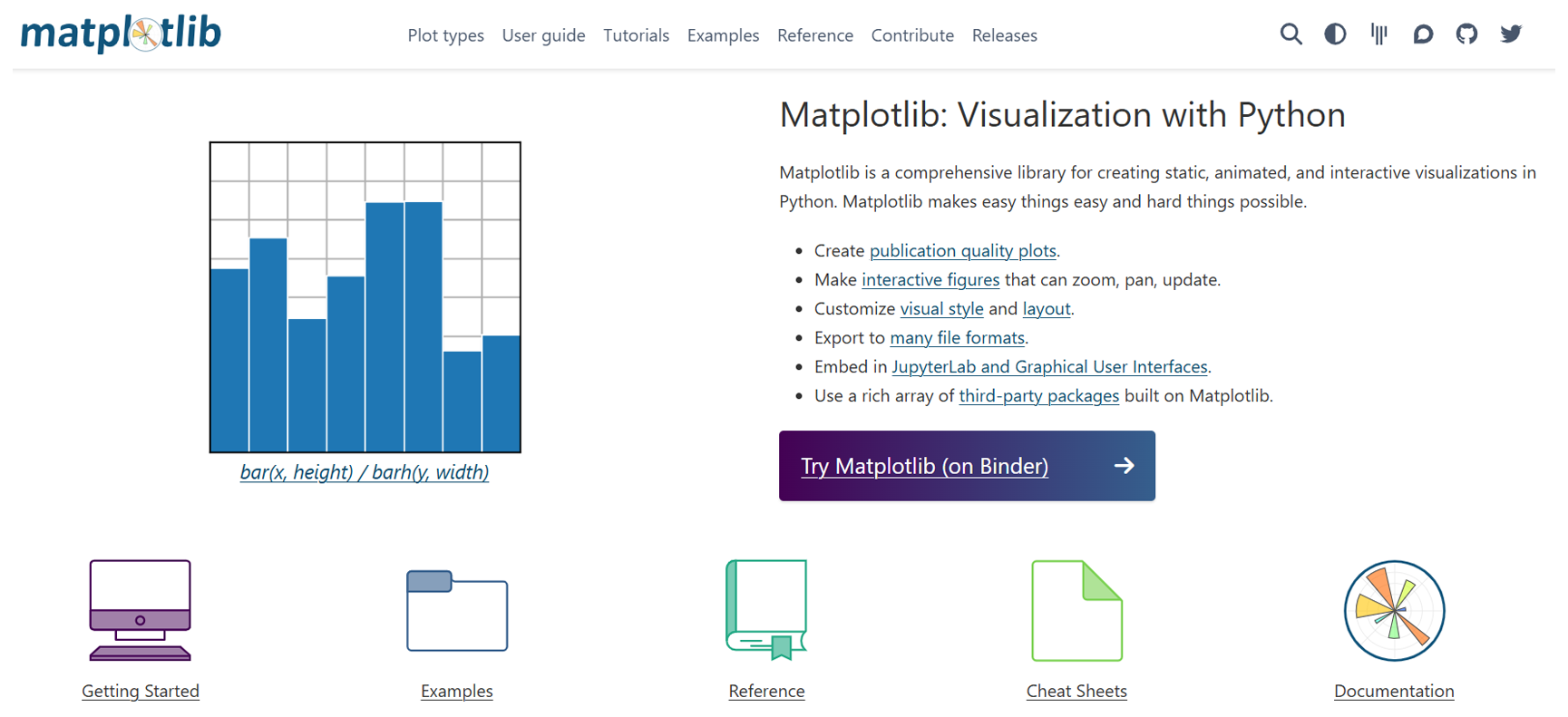
These help visualize data.
- Use for trends, patterns, comparisons
- Easy to embed into reports and dashboards
- Custom charts for business teams
4. Flask
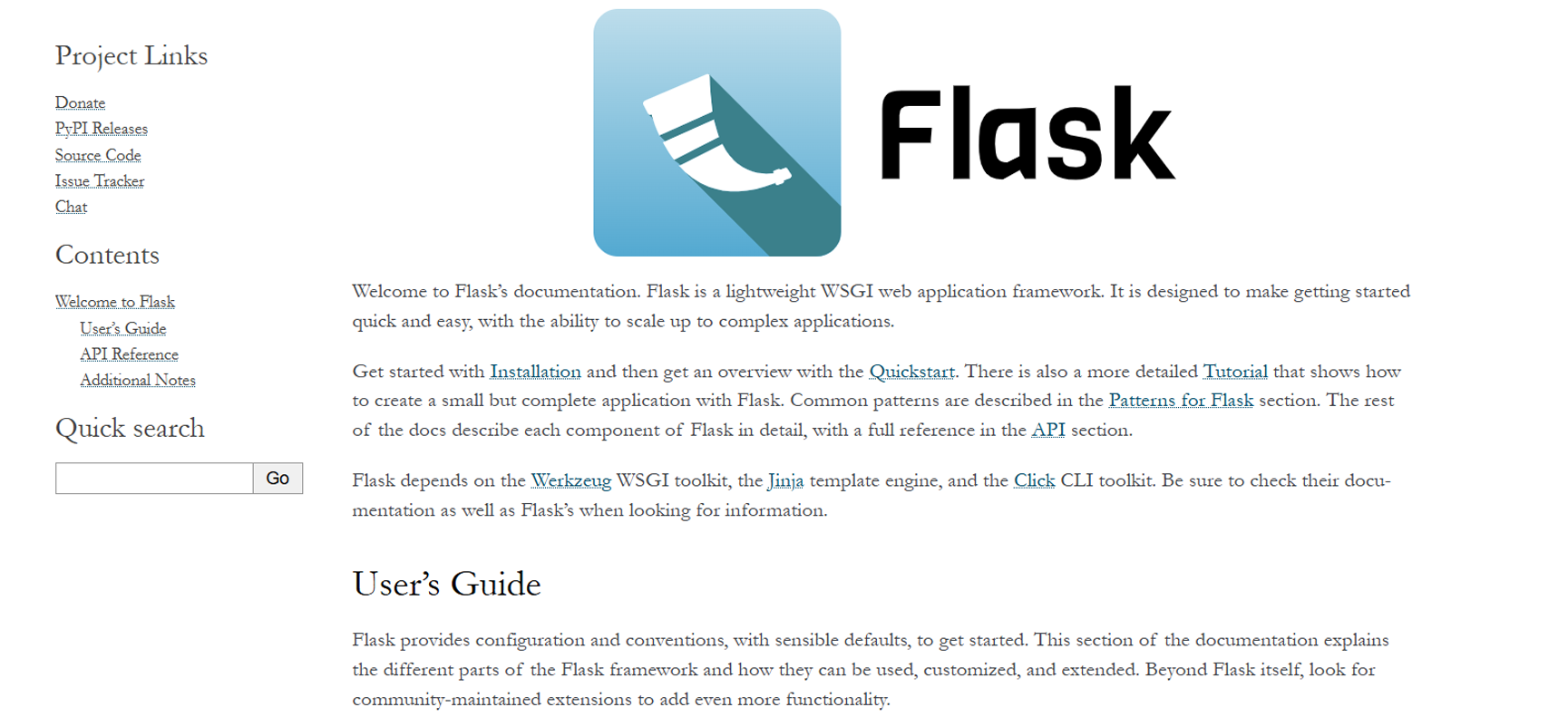
A lightweight web framework.
- Build small apps or APIs
- Good for MVPs and dashboards
- Integrates with frontend tools
5. Celery
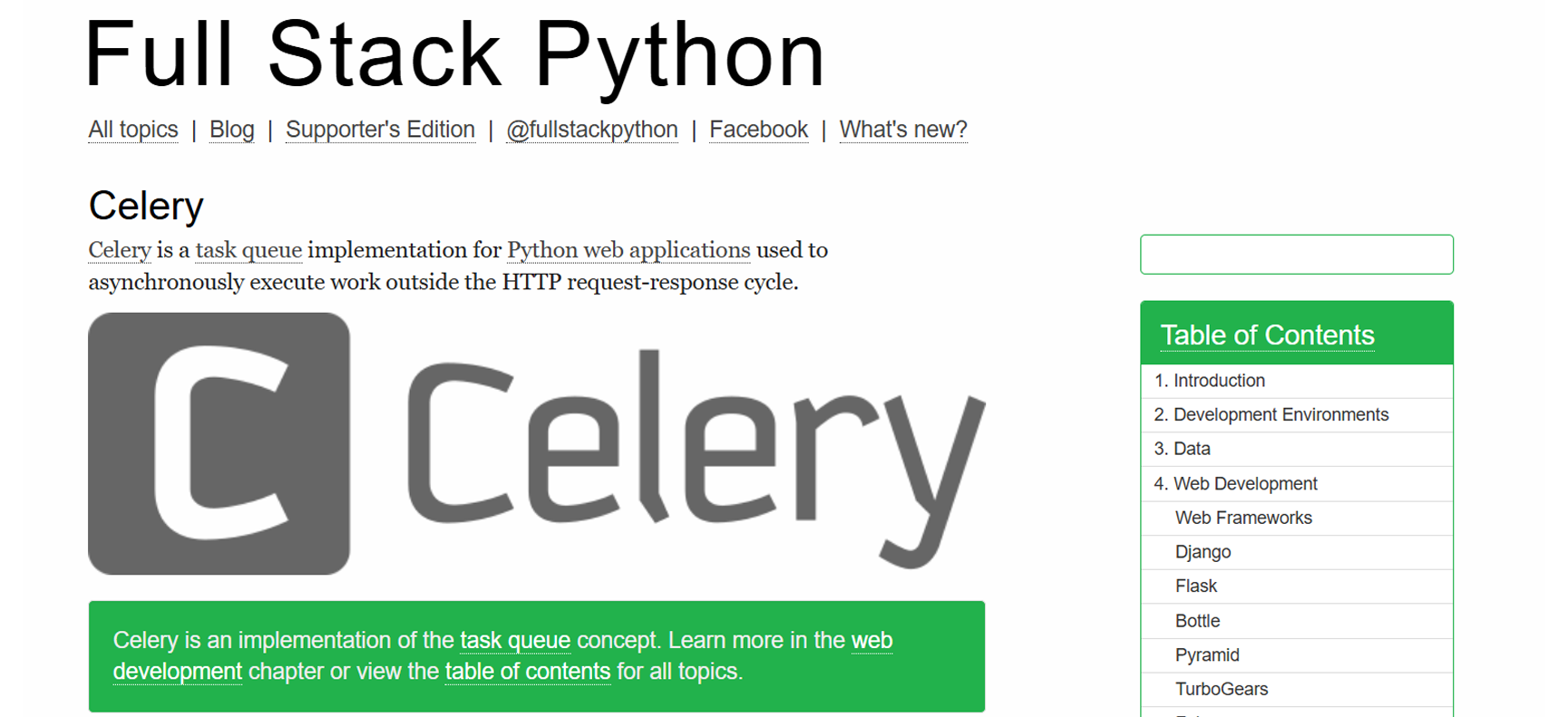
Handles background task automation.
- Great for sending emails, syncing data
- Used in batch job automation
- Scales well with business load
Real-world success stories show how Python drives innovation in areas like mobile apps and AI. The Switchin case study is a great example of how Python can power efficient, user-focused solutions.
Python for Startups vs. Enterprises: Flexible for All Sizes
Python works whether you’re a two-person startup or a 10,000-person enterprise. Startups love it for quick prototypes. Big firms like its power to handle scale.
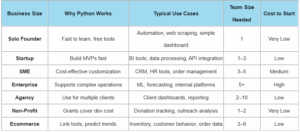
Examples of Companies Using Python in Business
Real businesses trust Python to solve real problems. From startups to big players, it’s used across industries. Here are a few examples of how companies use Python to solve real challenges and build smarter systems.
1. Willo
In LITSLINK project Willo uses Python to streamline its video interview platform and manage backend services efficiently. Python helps Willo automate processes, analyze data, and integrate machine learning models for a smoother user experience. It enables the platform to handle large amounts of video data and provide real-time, reliable performance.
2. Netflix
Netflix uses Python for a wide range of functions. This includes recommendation systems, stream quality monitoring, and internal data analysis tools. With Python, they personalize what you see based on your watch history.
Their backend systems handle millions of user events using Python’s data libraries and machine learning frameworks.
3. Spotify
Spotify processes huge amounts of data to personalize playlists and suggest music. Python helps their data teams build pipelines and run large-scale analysis. They also use Python for backend services like tracking music trends and managing infrastructure in real time.
4. Dropbox
Dropbox rewrote many of its desktop client features using Python. It allows their app to sync files across devices quickly and securely. Python also powers their internal tools for automation, customer support, and performance tracking.
5. Reddit
Reddit uses Python to handle millions of posts, comments, and messages every day. It supports content moderation tools, user behavior tracking, and API integration. Python’s scalability allows them to manage huge traffic with fewer development resources.
Python is also widely used in data-driven applications, including smart analytics and automation tools. In projects like our People Counter system, Python played a key role in processing real-time data.
6. PayPal
PayPal leverages Python for its scalability and speed in processing financial transactions. The platform uses Python to handle various backend services, data analysis, and automation tasks, enabling seamless integration with other systems. Python’s versatility allows PayPal to efficiently manage vast amounts of transaction data, ensuring reliability and speed in its operations.
7. Google
Google uses Python for various tasks like building web applications, data analysis, and automating processes. It helps Google handle large amounts of data and improve its search algorithms. Python makes it easier for Google’s teams to develop and maintain complex systems quickly and efficiently.
How to Get Started with Python in Your Business
Starting small is the best way to use Python in your company. You don’t need a large tech team or deep coding knowledge. Begin by identifying one pain point, a report that takes too long, a process that breaks often, or data that’s hard to read.
Use open-source libraries and tutorials to solve it with Python. Hire freelance developers or consult with tech partners if needed. Over time, you can train in-house teams or even automate whole departments.
Build confidence one step at a time. Then scale.
If your team lacks Python expertise, you can easily scale with remote specialists. LITSLINK offers flexible options to hire Python developers based on your specific needs.
Comparing Python with Other Business Programming Languages
Python isn’t the only language. But it is often the easiest and most flexible. Here’s how it compares.
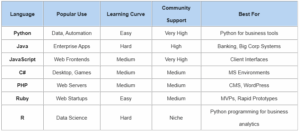
Not sure how to get started with Python in your business? You can reach out to LITSLINK for guidance or hire a dedicated development team to bring your idea to life.
How Python Supports Business Intelligence and Decision Making
Many companies sit on large amounts of raw data. But few know how to use it to make smart decisions. Python helps clean, organize, and analyze this data quickly. Business intelligence tools built on Python give insights in minutes, not weeks.
Python’s power shows best when used for forecasting, modeling, and time series analysis. A systematic review found that over 40 Python packages support time series analysis. That proves how deeply Python is in business, tied to planning and reporting functions.
For example, a retail company can use Python to pull sales data daily, clean it, group it by category, and compare it with past months. They can then visualize it using Seaborn or Plotly. The result: a better idea of what to stock, promote, or drop.
LITSLINK: Your Trusted Partner for Python-Based Business Solutions
If you’re ready to use Python programming for business but need help, that’s where we step in. At LITSLINK, we build Python-based tools for startups and enterprises alike. Whether you want to automate reports, build a dashboard, or connect APIs, we’ve done it.
We speak your language, simple, results-first, and always focused on business outcomes. We make sure our code supports your goals.
Let’s talk: How do you want to use Python for business applications in your company today?
LITSLINK is your reliable technical partner for developing applications and business software on Python.



